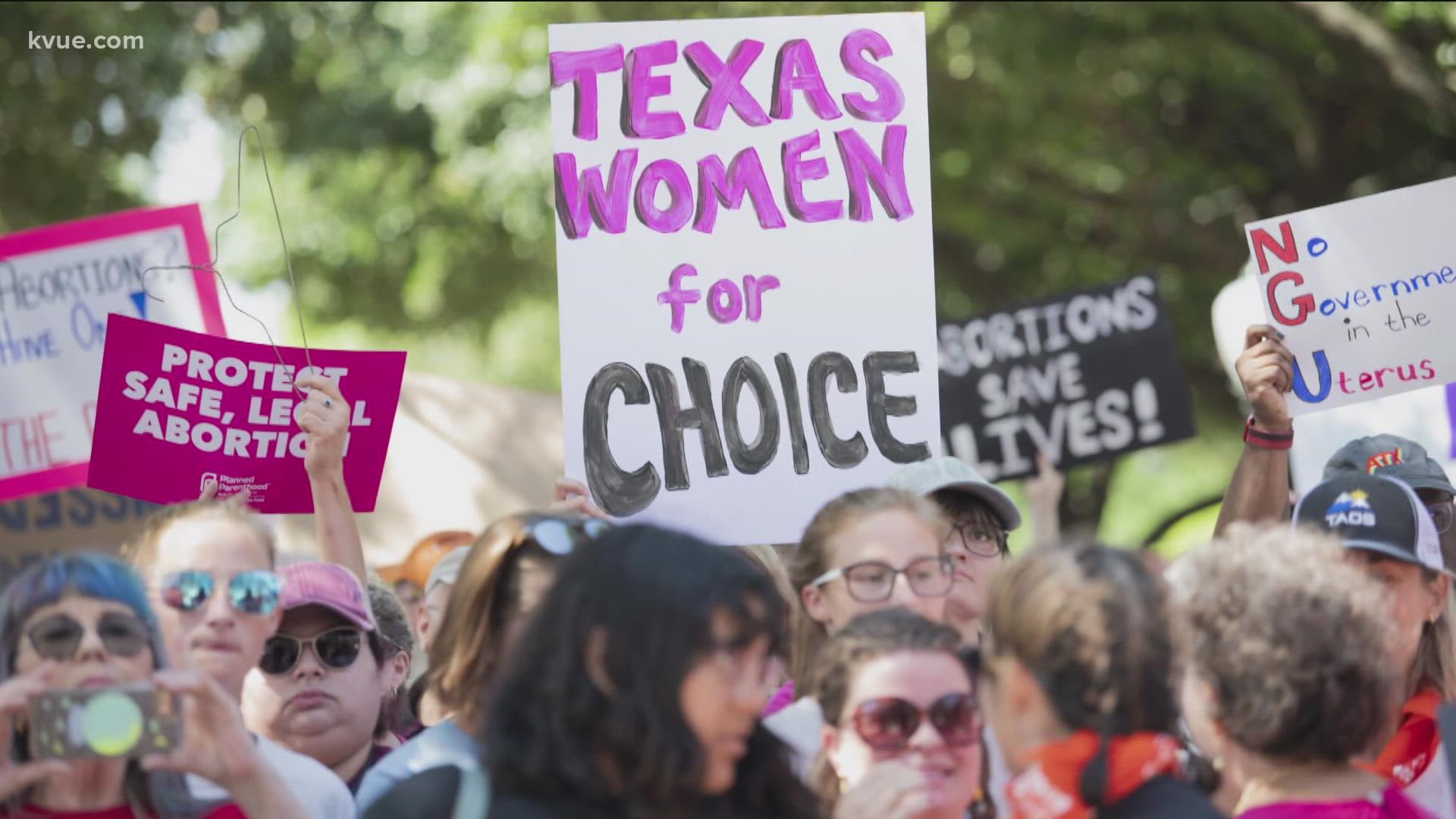AUSTIN, Texas — Corporate law experts are weighing in on the future of company health benefits should Roe v. Wade officially overturn by the U.S. Supreme Court.
This comes following an opinion draft leak indicating the abortion case would soon be overruled. According to the leaked draft, SCOTUS intends to overturn Roe v. Wade, reversing nearly 50 years of constitutional protection for abortion, and let states set their own restrictions on the procedure.
Companies have recently found themselves in the spotlight and under pressure by corporate advocates to take action before the Supreme Court finalizes the opinion draft. University of Texas corporate employee law expert and Director of Advocacy at the School of Law at UT, Mike Golden said Texas pre-Roe v. Wade laws will be enacted if the ruling is officially overturned.
"From a legal perspective, the state of Texas takes the position that, when Roe v. Wade was enacted, the statutes in Texas banning abortion were simply invalidated by the Supreme Court." Golden said. "When Roe v. Wade ends, they will spring back into place."
In Texas, if Roe v. Wade was revoked, abortion bans would go into effect 30 days after the overturn because of its "trigger law," which was passed by the Texas Legislature last year. The trigger law would make performing an abortion in Texas a crime. Doctors could face life in prison and fines up to $100,000. Texas is one of 13 states with a trigger law.
Big-name companies like Apple, Salesforce and Austin-based Bumble have already spoken out or announced changes to the healthcare benefits and policies before, during state-led efforts to restrict of ban abortions. Other companies have announced they are "reviewing" their policies.
Experts in corporate responsibility say it may be in the best interest of businesses to address reproductive rights, noting future employees – and customer bases – will pay attention.
"We're in pretty much the fiercest for employee talent that we've seen in decades," said Golden. "As a result, what you're going to see is a lot of employers put to the test of how to figure out what is the best way to retain and recruit talent when they are located in jurisdictions that are going to have more restrictive abortion laws."
Tesla, also based in Austin, shared in its 2021 Impact Report in April that its benefits now include "travel and lodging support for those who may need to seek healthcare services unavailable in their home state." It's unclear if this policy was created in response to state-by-state abortion restrictions, but it was put in place in the company in 2021, the same year as SB8 efforts in Texas, otherwise known as the Texas Heartbeat Act.
Golden said if companies ultimately decide to change their healthcare benefits and policies, they will keep the details broad and avoid anything specific. He said it's how companies will benefit its people and avoid offending its state governments.
"It's a really fine line for employers to walk," said Golden. "There will be other employees who need to seek critical care elsewhere. The whole point of pushing back and doing this ... they want to make sure their employees have the ability to receive critical health services and are not denied healthcare because of where they happen to live or happen to office."
Some of America's biggest companies offering travel reimbursement and other benefits to employees in states that restrict abortion access are:
- Amazon
- Apple
- Bumble
- Citigroup
- Chobani
- DoorDash
- Levi Strauss & Co.
- Lyft
- Microsoft
- Salesforce
- Starbucks
- Tesla
- Yelp
PEOPLE ARE ALSO READING:

